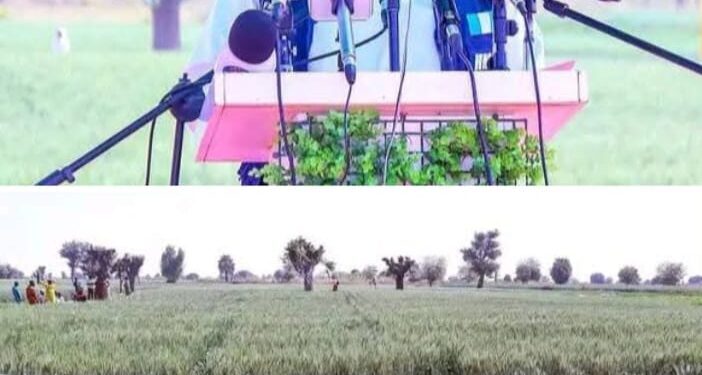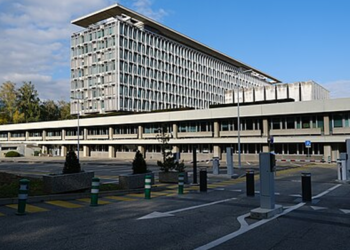In a significant move to support farming activities and promote food security, the Federal Government through the Federal Ministry of Agriculture and food security has distributed N5 billion worth of farm equipment and inputs to farmers in Jigawa State. This effort reaffirms the government’s commitment to agricultural transformation and food security.
The distribution, which took place at the Green Field Day celebration in Dabi Village, Ringim Local Government Area on Tuesday in Jigawa State
Senator Abubakar Kyari Minister of Agriculture and food security disclosed that the initiatives aims to support agricultural expansion in Jigawa. The state has been at the forefront of agricultural productivity, particularly in wheat farming and environmental conservation efforts.
Under the leadership of Governor Umar Namadi, Jigawa State has made remarkable progress in food production, including an ambitious plan to plant one million date trees for environmental sustainability. The National Agricultural Growth Scheme – Agro Pocket (NAGS-AP) program has played a crucial role in supporting agricultural expansion in Jigawa, with the state initially securing 30,000 hectares of land for agricultural purposes.
For the 2024/2025 wheat dry season farming, the government expanded the wheat cultivation area to 40,000 hectares and further added 40,000 hectares, bringing the total number of participating farmers to 160,000.
Senator Kyari also announced the distribution of 10,000 water pumps, knapsack sprayers, herbicides, pesticides, and organic fertilizers to farmers in Jigawa State. This initiative aligns with President Bola Ahmed Tinubu’s vision of modernizing agriculture, ensuring food security, and boosting economic prosperity through mechanization and sustainable farming practices.
The Agricultural boss urged retailers and traders to reflect the recent drop in food prices in their sales, making essential commodities like flour, rice, and spaghetti more affordable for Nigerians. This effort demonstrates the Federal Government’s commitment to transforming the agricultural sector through technology, mechanization, and sustainable practices, ultimately empowering farmers and promoting food security.











